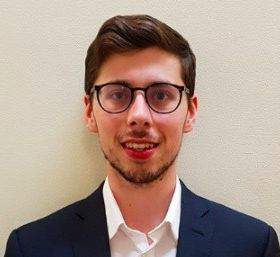Starting a new phase of life can be a daunting endeavor, especially during a pandemic. The beginning of a career is one such transition, and as myself and other graduates enter the financial services industry we are filled with both eagerness and doubts. Are ready to contribute to our teams? Will we find our work fulfilling? Will we do good for the community in our careers?
 Felix Ryan, ANZ Graduate
Felix Ryan, ANZ Graduate
I want to draw attention to this last point, since a career that benefits society is a career that makes a difference. A finance and banking career can yield improvements in societal wellbeing and be richly fulfilling, but friends and family both in and out of the business world have outlined their concerns. It makes for sober listening. The cases presented before the Royal Commission highlighted wrongdoings by some of Australia’s oldest and proudest institutions. Even prior to the Commission, it was not uncommon for stories of financial sector malfeasance to be circling in the public mind.
I’m pleased to say that in my short time in financial services I have not witnessed any misdemeanor. Many financial institutions and groups are striving to make ethical behavior a cornerstone of codes of conduct and focus for decision making. In my graduate orientation week, I was fortunate to hear from Dr Simon Longstaff of The Ethics Centre about how, amongst other initiatives, it seeks to restore the social license and social capital of the financial world through the promotion of banking’s own Hippocratic oath – The Banking and Financial Services Oath.
However, as Dr Longstaff highlighted, unethical behavior often arises from cultural blindness across institutions. This is especially true in organisations with monolithic culture, where everyone only sees shades of blue rather than the whole spectrum of problems. Rather than ignoring the elephant in the room, everyone misses the hidden tiger. The consequence is moral injury and broken trust in institutions. In cases concerning ethical wrongdoing in the financial services, the perpetrators and enablers, who are otherwise upstanding individuals, admit to being blind to what was happening because the institutional and cultural environment they were in. If hallowed leaders can be so influenced by their environment, what chance do we, the inexperienced young people, have of making the right choices when the moment arises?
Fortunately, to employ a cliché, we have each other. The relationships that we form early in our career informs the ethical framework for later decision making. It is paramount for graduates to form strong relationships with each other and those around us (in and out of the industry) so that we can create a culture of honesty, accountability and trustworthiness regarding our actions and observations. This will help us keep an open mind, to see across the full color spectrum, rather than being selectively color blind. As we climb the career ladder, this positive and open-minded culture will follow us, slowly transforming institutions for later generations of professionals. While cultural change is occurring from the top, only organically from the bottom up can cultural shifts become long-lasting. In doing so, society as a whole gradually becomes wealthier as it is served by an ethical and trustworthy banking and finance industry.